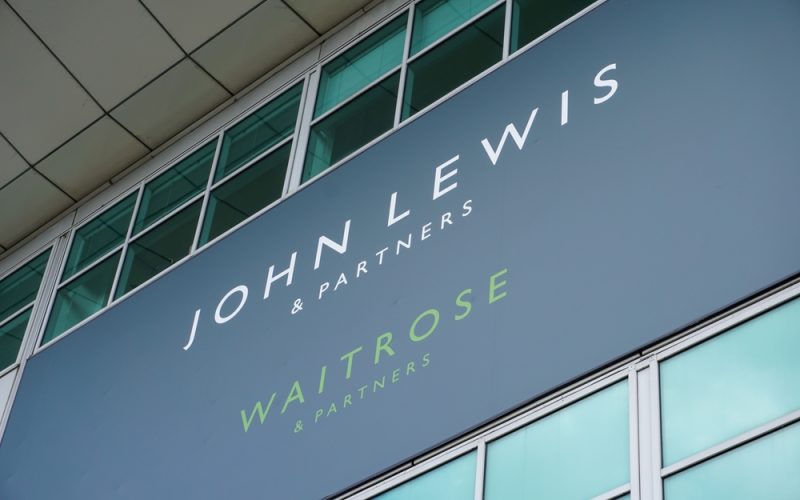In recent months, the iconic British retailers John Lewis and Waitrose have faced a surge in shoplifting incidents, prompting a significant public discussion on the underlying causes. Contrary to the prevalent narrative that shoplifting is driven primarily by economic necessity and hardship, these retailers argue that the spike is more about “greed not need.” This assertion has sparked considerable debate among industry experts, social commentators, and the general public, reflecting broader concerns about consumer behavior and social ethics in contemporary society.
Understanding the Shoplifting Surge

Shoplifting is not a new challenge for retailers. It has been an ongoing issue that waxes and wanes with the economic climate, social trends, and advancements in retail security technology. However, the recent spike reported by John Lewis and Waitrose appears unprecedented in scale and character. According to these companies, the nature of the thefts suggests that many are not driven by poverty or desperation but by opportunism and a blatant disregard for the law.
A Retail Landscape Under Pressure
The retail environment in the United Kingdom, and globally, has been under immense strain. The COVID-19 pandemic disrupted supply chains, altered shopping habits, and accelerated the shift towards online shopping. Traditional brick-and-mortar stores like John Lewis and Waitrose, which rely heavily on foot traffic, have had to adapt quickly to changing consumer behaviors and economic pressures.
In this context, the surge in shoplifting adds another layer of complexity to an already challenging business landscape. Retailers are grappling with reduced revenues, increased costs associated with implementing COVID-19 safety measures, and now, a sharp rise in theft. The financial impact of shoplifting is significant; it not only represents direct losses of goods but also increases in security costs and potential reputational damage.
Greed vs. Need: The Debate
The assertion by John Lewis and Waitrose that the rise in shoplifting is driven more by “greed not need” has stirred a robust debate. This perspective challenges the commonly held belief that most shoplifters are driven by economic necessity. While it is undeniable that some thefts are motivated by poverty and the need for basic essentials, the retailers argue that a substantial portion of the recent incidents involve luxury items and non-essential goods.
Evidence of Opportunism
Reports from John Lewis and Waitrose indicate that items frequently targeted include high-end electronics, designer clothing, premium alcohol, and gourmet food products. These are not typically the goods one would associate with survival or basic needs. Instead, they point towards a pattern of theft driven by a desire for luxury and status symbols.
Moreover, the methods employed by shoplifters have become increasingly sophisticated. There are accounts of organized gangs using distraction techniques, professional shoplifters deploying advanced tools to bypass security systems, and even instances where employees are complicit in the thefts. This level of organization and the choice of targets suggest a premeditated approach rather than impulsive acts of desperation.
Societal Reflections
The notion that shoplifting is motivated by greed rather than need raises broader questions about societal values and economic disparities. While some commentators argue that this perspective downplays the real and growing issue of economic hardship, others suggest it highlights a troubling trend of moral erosion and entitlement.
Economic Disparities
It is essential to acknowledge that the UK, like many other countries, has seen rising economic inequality. The cost of living crisis, exacerbated by the pandemic and inflation, has put a strain on many households. However, attributing the surge in shoplifting solely to economic hardship does not account for the complex motivations behind the crimes.
Moral Erosion
On the other hand, the argument that greed is a significant factor points to a possible erosion of social norms and personal ethics. In an age where consumerism and material success are often glorified, the temptation to acquire goods by any means necessary may be stronger. This perspective suggests that societal attitudes towards ownership, wealth, and success could be contributing to a rise in opportunistic crimes.
Retailers’ Response
In response to the surge in shoplifting, John Lewis and Waitrose have implemented a range of measures aimed at deterring theft and protecting their assets. These include:
1. **Enhanced Security Systems:** Upgrading surveillance cameras, implementing more robust electronic tagging, and employing advanced data analytics to identify patterns and potential threats.
2. **Increased Staffing:** Deploying more security personnel and training employees to recognize and respond to suspicious behavior more effectively.
3. **Community Engagement:** Working with local law enforcement and community organizations to address the broader social issues contributing to the rise in shoplifting.
4. **Public Awareness Campaigns:** Educating customers and the public about the consequences of shoplifting and the measures being taken to combat it.
The Role of Law Enforcement
Law enforcement agencies play a critical role in addressing shoplifting. The police have stepped up their efforts in collaboration with retailers, conducting more frequent patrols and focusing on high-risk areas. Additionally, there have been calls for stricter penalties for those caught shoplifting, especially for repeat offenders and organized crime groups.
Technological Solutions
Technology is a crucial ally in the fight against shoplifting. Advances in artificial intelligence and machine learning have enabled retailers to develop sophisticated systems that can detect suspicious behavior in real-time. Facial recognition technology, although controversial, is being considered for its potential to identify known offenders and prevent thefts before they occur.
The Ethical Dilemma
While technological and security measures are necessary, they also raise ethical concerns. The use of facial recognition and extensive surveillance can infringe on privacy rights and create a sense of distrust among customers. Striking a balance between effective security and respect for individual privacy is a delicate task that retailers must navigate carefully.
Conclusion: A Complex Issue
The surge in shoplifting faced by John Lewis and Waitrose is a microcosm of larger societal issues. Whether driven by greed or need, the rise in theft reflects underlying economic, social, and ethical challenges. Addressing these requires a multifaceted approach that goes beyond security measures to include community engagement, social support, and a reevaluation of societal values.
Retailers, law enforcement, and policymakers must work together to create an environment where the motivations for shoplifting are minimized. This involves not only protecting businesses from financial loss but also addressing the root causes of theft, whether they be economic hardship or a broader cultural shift towards materialism and opportunism.
In the end, the debate over “greed not need” is not just about shoplifting; it is a reflection of the complex interplay between individual behavior, societal norms, and economic conditions. Understanding and addressing this interplay is key to creating a more equitable and ethical society, where the reasons for theft are reduced, and the integrity of community and commerce is upheld.











